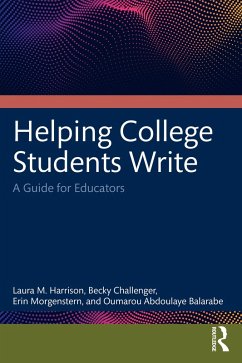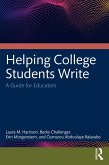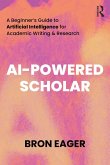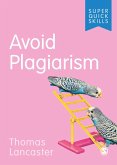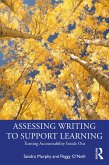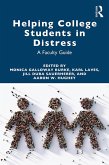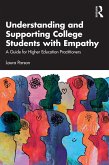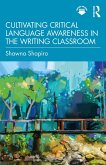This accessible guide offers conceptual tools and practical strategies, including lesson plans, stock comments instructors can use to explain frequently occurring writing problems, and writing prompts to help struggling students address writer's block. Covering topics such as managing grading time, reducing students' anxiety about writing, giving clear and formative feedback, troubleshooting, and providing practical tips for helping ESL students, this book is a one-stop shop for assisting students across academic disciplines.
By implementing the guidance offered in this manual, college and university faculty and instructors can guide students effectively and efficiently in improving their writing.
Dieser Download kann aus rechtlichen Gründen nur mit Rechnungsadresse in A, B, BG, CY, CZ, D, DK, EW, E, FIN, F, GR, HR, H, IRL, I, LT, L, LR, M, NL, PL, P, R, S, SLO, SK ausgeliefert werden.
Bob Klein, Professor and Chair of Teaching, Learning, and Foundations, Eastern Illinois University
"Chock full of effective writing strategies and teaching approaches for college students across disciplines, this book offers a journey of self-reflection, composition literacy, and growth mindset to discover the writer within our students, as well as ourselves. As an instructor of first-year writing for over 25 years, I highly recommend this book for helping students develop confidence in writing and reading. Writing in prose that is personal and engaging, the author gives language to the roadblocks and breakthroughs all writers experience."
Robyn Lyons-Robinson, Professor and Chair, English Department, Columbus State Community College
"This is a book that should be read by all faculty regardless of discipline. We have all encountered the challenges in student writing, with the proclivity to assign fault to a lack of college preparedness, covid or other issues, rather than view students through the lens of the new majority. Harrison and colleagues seamlessly combine proven and constructive practical advice with well researched pedagogy, making it a comprehensive and engaging resource to assist all students to become better writers. Indeed, I would make this book required reading for all new faculty to help them start their careers in academia on the right foot."
Donal C. Skinner, Dean of Hobson Wildenthal Honors College, The University of Texas at Dallas

